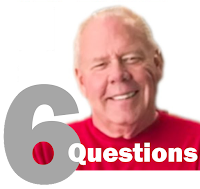The most unorthodox book recommendation yet.
That’s how Eddie Shleyner characterized one of my answers in
an interview.
“What book has helped you the most over your career?”
Not fair to make me choose, Eddie.
One is definitely “The Cat in the Hat”. Dr. Seuss totally
understood his audience and was a master of using simple, active words to
engage his readers with fun stories. I also like the subversive nature of the
book.
Most unorthodox? Out of around 6-dozen? I’ll happily wear
that as a badge of honor. Thanks, Eddie.
________________________
Read the full micro-interview: https://www.verygoodcopy.com/microinterviews-3-1/scott-frothingham
________________________
Dr. Seuss (Theodore Seuss Geisel) was born on March 2, 1904. Dr. Seuss Day is held annually on the school day closest to his birthday. The day promotes reading for children and is primarily known as Read Across America Day.















